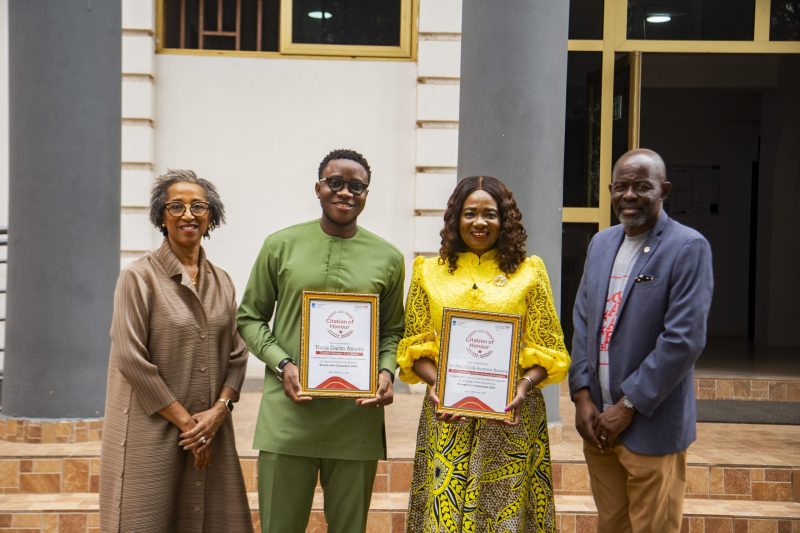The Politics and Debate Society (POLSOC) hosted Mrs Cindy Badoe, Deputy Director/Head of Built Environment of the Environmental Protection Agency (EPA) for a guest lecture on Climate Change Impacts in Ghana on LUG campus.
According to Mrs. Cindy Badoe, vulnerability studies by EPA shows that there is an increase in temperature and a decrease in rainfall in agro-economical zones in Ghana. The atmosphere is the essential physical and chemical environment for life. Changes to the physical and chemical properties of the atmosphere have the potential of affecting directly the quality of life and even the very existence of some forms of life. Human-induced climate change, in particular, as well as other global environmental issues such as land degradation, loss of biological diversity and stratospheric ozone depletion, threatens our ability to meet very basic human needs.
This lecture focused on a variety of areas under the climate change subject including effects of climate change in Ghana, objectives of National Climate Change policy, Ghana’s intervention and the way forward.
She added, “as part of the nation’s efforts to integrate climate change into the national development framework, some 170 districts including the newly created 32 districts have been trained on mainstreaming Climate Change Adaptation and Disaster Risk Reduction through high held interactive workshops”.
Mrs Cindy Badoe is currently a Deputy Director and the Head of the Built Environment Department of the Environmental Protection Agency. She attended Kwame Nkrumah University of Science and Technology where she obtained a BSc Hons in Planning. She was awarded an MPhil in Development Planning from the Bartlett School of Planning and Architecture University College of London.
She worked as a Principal Planner for twelve (12) years in the London Borough of Hackney prior to her appointment at the Environmental Protection Agency. She is a member and former Treasurer of the Ghana Institute of Planners and a member of the International Association of Impact Assessment.
View more pictures from the guest lecture here.



